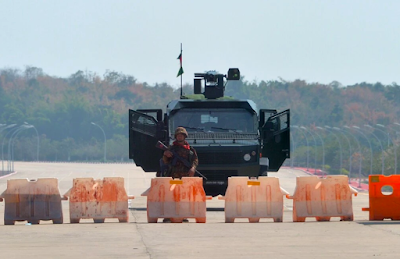Myanmar's coup, the international response and the China factor.

As international condemnation continues in response to the military coup in Myanmar, frustration grows with the United Nations Security Council's inability to take decisive action. Yet despite renewed calls for the UN to approve sanctions against the military leadership and military-owned economic holding companies, it remains unlikely that the Council will be able to void China's veto. FDR and Churchill meet with Chaing Kai Shek and his wife Soong Mei-ling in 1942 (Source: Wikimedia Commons) When the United Nations was first created in 1944, the architects designed its highest body, the Security Council, with unique veto powers for the wartime allies. At that time, this meant, alongside the United States, the United Kingdom, France, and the Soviet Union, China was accorded the same great power status. However, at that juncture, China was officially under the authority of the nationalist Kuomintang party led by General Chiang Kai Shek, and much of it under Japanese occupatio...


